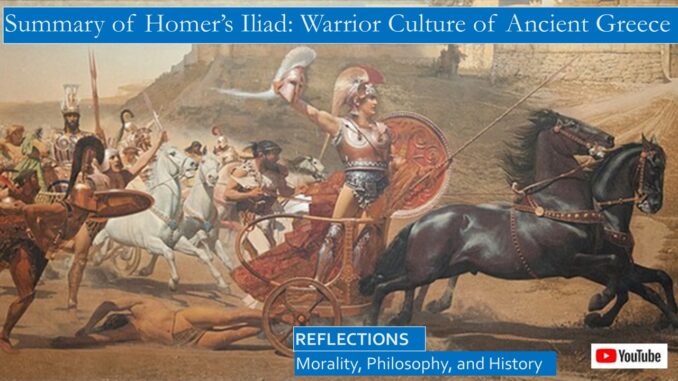
Today we reflect on a summary of the Iliad by Homer.
We cannot truly understand the culture of the ancient Greeks, and Greek philosophy, culture and history, not to mention the Western philosophical tradition, without becoming familiar with Homer’s works, the Iliad and the Odyssey.
Why is the RAGE of Achilles the first word of the saga? Why did Achilles choose to boycott the battles when his concubine Briseis was taken away from him?
How does the Iliad celebrate both the glory and the futility of war?
What role did concubines play both in ancient warfare and in ancient warrior cultures?
How similar were the warrior cultures of ancient Greece and the American Indians?
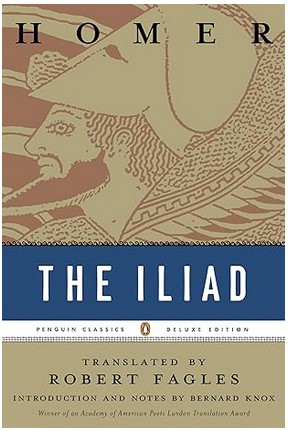

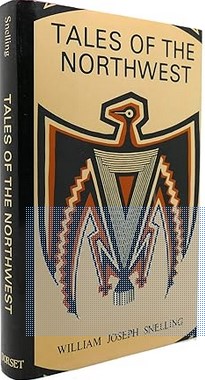

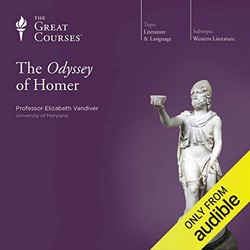
Powerpoint Script with Book Links:
https://www.slideshare.net/BruceStrom1/summary-of-homers-iliad-warrior-culture-of-ancient-greece
YouTube video for this blog: https://youtu.be/6C5znDxvpQ8
ALL ANCIENT CULTURES WERE WARRIOR CULTURES
All ancient cultures were warrior cultures, out of necessity. War was a deadly business, if an ancient city-state lost the war the city would be plundered, often the military-age men would be slain, and the women and children would be sold into slavery. In ancient Athens, a quarter of the population were slaves, and in ancient Rome about forty percent of the population were slaves. Most of these slaves were either born into slavery or were captured during war, some were captured and sold by pirates.
Ancient Warrior Societies, Blog 1, The Warrior Ethos of Ancient Greece, Rome, and Israel
https://seekingvirtueandwisdom.com/ancient-warrior-societies-blog-1-the-warrior-ethos-of-ancient-greece/
Ancient Warrior Culture, Ancient Greece, Rome, and Israel
https://youtu.be/7QAZ_s6zw4E
Ancient Warrior Societies, Blog 2, Greek and Roman Armies and Navies
https://seekingvirtueandwisdom.com/ancient-warrior-societies-blog-2-greek-and-roman-armies-and-navies/
Ancient Warrior Societies, Blog 3, World of the Old Testament
https://seekingvirtueandwisdom.com/ancient-warrior-societies-blog-3-world-of-the-old-testament/
Ancient Warfare in Ancient Greece, Rome, and Israel. Did Joshua Massacre Pagans in Promised Land?
https://youtu.be/9xKxqAbJ2qY
Slaves in the Ancient World, Blog 1, Were Slaves the Employees of the Ancient World?
http://www.seekingvirtueandwisdom.com/slaves-in-the-ancient-world-blog-1-were-slaves-the-employees-of-the-ancient-world/
Slaves in Ancient Greece and Rome, Blog 2
http://www.seekingvirtueandwisdom.com/slaves-in-ancient-greece-and-rome-blog-2/
https://youtu.be/O67cmVRvBtA
Teachings about Slavery in the Bible, the Stoics, and by the Early Church Fathers
http://www.seekingvirtueandwisdom.com/teachings-about-slavery-in-the-bible-and-by-the-early-church-fathers/
https://youtu.be/poyvJajCXnE
Scholars agree that the Iliad and Odyssey were recited orally as epic poetry for centuries before they were written down. Some scholars speculate that the ancient Greek language was influenced more by the Iliad and Odyssey than the English language was influenced by the Bible and Shakespeare.
Iliad, Blog 1, Why Should a Christian Read the Iliad?
http://www.seekingvirtueandwisdom.com/iliad_blog01/
The Iliad, the Basis of Greek Culture and the Western Philosophical Tradition
https://youtu.be/DpmuhZJUJn0
The Great Courses professor, Elizabeth Vandiver, tells us that the “Homeric warrior fights for:
Honor (timê, pronounced teemay)
Glory or fame (kleos).
Geras: booty, gifts, or a particular prize (geras).
Kleos also serves as the only true form of immortality available to Homeric heroes: they live on in what people say about them after they are dead.”
COMPLETE SAGA OF THE TROJAN WAR
Homer’s Iliad only covered an excerpt of the saga of the Trojan Wars. By far the Iliad was the most revered, but there were other epic poems, mostly lost to the sands of history, that sung the rest of the story.
This is the basic plot line of the complete saga of the Battle of Troy from Professor Vandiver’s study guide:
BOLDFACE: Time Period of the Iliad
- “The most beautiful woman in the world, Helen, daughter of the great god Zeus and wife of the Greek Menelaos, was abducted by the Trojan prince Paris.
- Under the command of Menelaos’ elder brother Agamemnon, the Greeks mustered an army to go to Troy and fight for Helen’s return.
The war against Troy lasted for ten years. The fighting was evenly balanced, with each side having its foremost warrior (Achilles for the Greeks, Hector for the Trojans). - Achilles was the son of a goddess mother, Thetis, and a human father, Peleus. Their wedding was arranged by Zeus, and Thetis was not entirely willing.
- The greatest Trojan warrior, Hector, was killed by the greatest Greek warrior, Achilles, who after the time of the Iliad was himself killed by Paris.
- Finally, the Greeks resorted to trickery. Using the famous ruse of the Trojan Horse, invented by Odysseus, they infiltrated the walled city of Troy and sacked it by night. The Odyssey mentions the Trojan Horse.
- The Greeks committed many outrages against the Trojans during the Sack of Troy. Foremost were the killing of King Priam at his household altar, the murder of Hector’s baby son Astyanax by throwing him from the city walls, and the rape of Priam’s daughter Cassandra in the virgin goddess Athena’s temple.
- These outrages angered the gods, leading to many hardships for the surviving Greeks on their way home. Most importantly, Agamemnon was killed by his wife and her lover when he arrived home, and Odysseus spent ten years wandering on his way home from Troy.”
COMPARING ANCIENT GREEK TO AMERICAN INDIAN CULTURE
In many ways, the warrior culture of ancient Greece is more comparable to the American Indian culture than it is to the modern American culture, except that ancient Greece was evolving into a literate culture. Literacy encourages introspection, and Homer in the Iliad, while celebrating the glory of the ancient Greek warriors, also explores the futility and madness of war.
The similarities between the warrior culture of the Iliad and the American Indian warrior culture as described in the Tales of the Northwest are captivating. These include stories of incredible stoic bravery not only on the battlefield, but also incredible bravery shown by those who are not involved in the fighting.
Iliad, Blog 3, Visiting the Enemy Camp, Greeks vs Indians
http://www.seekingvirtueandwisdom.com/iliad-blog-3-visiting-the-enemy-camp-greeks-vs-indians/
The Warrior Cultures of the Iliad and the American Indian, Bravely Visiting the Enemy Camp
https://youtu.be/ynIx-AVI2f8
The Iliad is about the rage of Achilles, the first verses of the Iliad celebrate the rage of the great warrior Achilles, the very first word of the Iliad is:
“RAGE – Goddess, sing the rage of Peleus’ son Achilles, murderous, doomed,
that cost the Achaeans countless losses,
hurling down to the House of the Death so many sturdy souls,
great fighters’ souls, but made their bodies carrion, feasts for the dogs and birds,
and the will of Zeus was moving toward its end.” [1]
What was the source of Achilles’ rage? Was he raging at the Trojans?
No, Achilles’ rage was directed at King Agamemnon who had caused him to lose face when he confiscated his prized concubine, the beauty Briseis. During raids on the towns surrounding Troy, the Greeks carried off many of their young maidens as newfound concubines, Agamemnon won the young girl Chryseis, while Achilles won the beauty Briseis.
Professor Elizabeth Vandiver opines that Agamemnon did much more than rob from Achilles his concubine, that in his hubris he stripped from Achilles not his armor but worse, stripped from him his honor and his glory, making him lose face before his comrades. Indeed, gaining respect and avoiding shame is critical for warriors, and men in any age.
The first act of bravery in the Iliad occurs when Chryses, father of Chryseis, alone, unarmed, in broad daylight, confidently strides into the armed camp of the Achaeans, seeking to ransom his daughter Chryseis. The courage of Chryses impresses the armies of the Greeks, but Chryses is shown no hospitality by Agamemnon, but is discourteously told to leave from whence he came, which is what initially angered the gods, this breaking of hospitality is something you just do not do. This is an aborted camp meeting, and many Greeks will die from the plague.
The priest Chryses prays to Apollo, and Apollo sends a plague down upon the Achaeans, killing many noble warriors ignominiously. A Greek seer prophecies that the only way to end the plague is to return the daughter Chryseis to her father Chryses, and at length, the Achaeans persuade Agamemnon that he must do just that.
King Agamemnon has already committed one act of hubris by mistreating a priest of Apollo, so now he commits another act of hubris. All the concubines kidnapped during their raids have been distributed among the soldiers, so rather than wait for the next successful raid, Agamemnon seizes the concubine of Achilles, Briseis. This causes the RAGE to boil up inside Achilles, this is why he decides he no longer needs to fight Agamemnon’s battles to retake the kidnapped beauty Helen of Troy.
There are parallel stories of brave camp meetings in the best book on American Indian frontier culture I have encountered, The Tales of the Northwest. One is the story of Charles Hess, he was a half breed, half white, half Indian, not by choice. He found work with another fur trading company three hundred miles hence, so he had to move with his wife and children to take the new job.
They came across a herd of buffalo, and he galloped ahead to shoot some supper, but the herd spooked, and he was detained for several hours chasing down dinner. When he was gone, some Sioux Indians who had been trailing this little party attacked destroyed the camp and all that was in the camp.
There are parallel stories of brave camp meetings in the best book on American Indian frontier culture I have encountered.
One is the story of Charles Hess, he was a half-breed, half-white, half-Indian, not by choice. He found work with another fur trading company three hundred miles away, so he had to move with his wife and children to take the new job.
They came across a herd of buffalo, and he galloped ahead to shoot some supper, but the herd spooked, and he was detained for several hours chasing down dinner. When he was gone, some Sioux Indians who had been trailing this little party attacked and destroyed the camp and all that was in the camp, killing and scalping his wife and five of his children, including his son, and carrying away his daughter.
Our friend Charles Hess had no choice, he swore vengeance, but he traveled on to his new post, and fell sick for a week or so, but he heard some news of which tribe held his daughter. He made some inquiries through intermediaries of what would be accepted as a ransom.
Charles Hess knows he needs to pay a visit to the enemy camp, alone, unarmed, in broad daylight, walking tall. What does he experience when he enters the camp of the enemy?
Charles Hess saw in the enemy camp “the scalps of his family hanging upon a pole, and the savages were dancing around them in triumph. He was greeted, not with hostility, for the hospitality of the Sioux nation forbade that, but with evident exultation and insolence. Some sung the wrong they had done him. He presented himself before his daughter’s husband, or master, and uncovering his breast said, ‘I am worthy of pity. This is my only child; restore her or strike me as you struck her mother. I am alone on earth; lo, here is a ransom.’”
The story continues: “The features of the Indian master showed some feeling. ‘I am the only child of my father,’ he replied. ‘The ransom is little, but you are old and need someone to make your clothes and moccasins, and to take care of you. Tarry and partake of our cheer before you depart. Then take your child, Rising Buffalo (the name the Sioux had given him), and none shall molest you.’”
Fearful to irritate the Indian by any sign of impatience, the heart-stricken old man entered the lodge, and sat down with his daughter to a dish of boiled buffalo meat. While at this repast, a young savage who had assisted at the massacre of his family entered, and holding out his bow and arrows to Hess, said, ‘here, Rising Buffalo, I used this once to your sorrow. Do you understand the use of it?’
He was in an enemy camp, wary, unarmed, and outnumbered, by you just cannot let such insolence go unanswered. “He sprang to his feet, seized the weapons, and drawing the arrow to the head, replied, ‘Stand off a little and I will show you.’ But the elder interfered. ‘You are a fool,’ said he. ‘Go away and let Rising Buffalo depart in peace.’”[2]
This is only one of many successful camp meeting stories in the Tales of the Northwest.
The Iliad has a successful camp meeting near the end. After Achilles has slain Prince Hector in battle, his father King Priam bravely marches into the Greek camp, and into the tent of Achilles, to plead for the return of the body of his son, so he can provide him a proper burial. He does throw his arms around the knees of Achilles, but this is how, in Greek culture, you ask mercy of a warrior. Achilles breaks down in sympathy with the father’s grief. Since this is a successful camp meeting, they share the requisite meal before Priam leaves with the body of his son.
CONCUBINES IN THE ILIAD AND OLD TESTAMENT
The Iliad also opens with a conflict between warriors, between Achilles and Agamemnon, over concubines captured in battle.
Iliad Blog 2, Captured Concubines in the Iliad and the Torah
http://www.seekingvirtueandwisdom.com/iliad_blog02/
The Iliad, blog 4, Briseis, Chryseis, Aren’t all Concubines the Same?
http://www.seekingvirtueandwisdom.com/the-iliad-blog-4-briseis-chryseis-arent-all-concubines-the-same/
Concubines in the Iliad, Old Testament and Christian Tradition
https://youtu.be/bGHHD7XTvr0
There are clues that suggest that perhaps Briseis is not the typical concubine, she actually has a few lines of dialogue in the Iliad, and her later actions suggest she genuinely cares for Achilles, which is reciprocated by pieces of dialogue from Achilles.
Briseis later shows her devotion to Achilles when they both mourn over the corpse of Achilles’ best friend, Patroclus, after he is killed in battle.
Concubines captured in battle are just part of a warrior culture, we see this in the warrior culture depicted in the Old Testament. In the Old Testament, there is a mitzvah for concubines captured in battle:
“When you go forth to war against your enemies, and the Lord your God gives them into your hands, and you take them captive, and see among the captives a beautiful woman, and you have desire for her and would take her for yourself as wife, then you shall bring her home to your house, and she shall shave her head and pare her nails.”
“And she shall put off her captive’s garb, and shall remain in your house and bewail her father and her mother a full month; after that you may go in to her, and be her husband, and she shall be your wife. Then, if you have no delight in her, you shall let her go where she will; but you shall not sell her for money, you shall not treat her as a slave, since you have humiliated her.”[3]
The rabbis consider these verses important, for Rambam draws out both positive and negative Mitzvah from them. The gist of the rabbinical commentary is that the captive beautiful woman should be treated with respect and dignity, she should not be treated as a mere slave, she should rather be treated as a wife like any other Jewish wife.
Initially, she is to be left alone and not violated, allowed to mourn her loss for a solid month to give time for the soldier’s lust to subside. Rambam regards this verse as “only a concession to human weakness,” [4] and that “there is no doubt that one of the basest things a man can do is to discard a woman with whom he has lived together,” [5] particularly when alone she has no good way to earn a living for her and her children.
We want to mention that there is a role reversal in the sequel to the Iliad, the Odyssey, where our hero Odysseus is delayed in his journey home from the Trojan War when is held hostage and compelled to sleep with several goddesses, including the seven years he was forced to be the paramour for the goddess Calypso.
SUMMARY OF EVENTS IN THE ILIAD BY HOMER
Why did the Greeks sail to Troy, and battle the Trojans for ten long years before prevailing?
The Iliad Blog 5, the Tide of Battle Turns Against the Greeks
http://www.seekingvirtueandwisdom.com/the-iliad-blog-5-the-tide-of-battle-turns-against-the-greeks/
The Iliad Blog 6, Embassy to Achilles, Oration, Failed Meeting
http://www.seekingvirtueandwisdom.com/the-iliad-blog-6-embassy-to-achilles-oration-failed-meeting/
The Iliad Blog 7, the deaths of Patroclus and Hector
http://www.seekingvirtueandwisdom.com/the-iliad-blog-7-the-deaths-of-patroclus-and-hector/
The Iliad of Homer: Glory, Honor, Madness and Futility of War
https://youtu.be/7lI2ZQ50wRc
They fought for the return of Helen of Troy, whom the prince Paris had kidnapped from the court of King Menelaus, brother of Agamemnon.
Helen was the most beautiful woman in Greece, she had many suitors from all over Greece, and before Menelaus was chosen, all the suitors swore an oath to defend Helen’s marriage, so when Paris kidnapped her, all the Greek kings sailed to Troy to rescue Helen from the Trojans.
The gods were immortal, but they were not omnipotent, nor were they omniscient, but they could be wounded, though their wounds could always be healed at Mount Olympus. It is clear in the Iliad that the gods take a great interest in kings and princes and great warriors and are particularly interested in the events of the Trojan War. Many mighty mortal warriors in the Iliad, like Achilles, have a god for their mother, or sometimes their father. In the Iliad, the gods come to earth, sometimes in disguise, to visit this mortal or that, or even fight in the battle next to their favored mortal combatants.
Are the gods also interested in the affairs of the ordinary little man, the farmer, the slave, the poor man? Not so much. Little people may offer sacrifices to appease the gods, to save them from the capriciousness of the weather and war and life, but nobody thought the Greek gods would listen to them. The closest we come is the Roman stoic philosopher Dio Chrysostom, who says we should sacrifice to the gods whether we think it does any good or not because it is a good thing to do.
The Iliad is beloved for its memorable and touching scenes, as well as depicting the glory of the warriors of both sides locked in a bitter struggle.
Since the Trojan War was started when the Trojan Prince Paris, egged on by the goddess Aphrodite, kidnapped Helen, the most beautiful woman in the world, wife of the Greek Menelaus, brother of King Agamemnon, the two armies decided that the contest would be decided by a duel between Menelaus and Paris. But after Paris is beaten, he is whisked off the battlefield by the goddess Aphrodite to the bed of his captured wife, Helen, who despises him for his cowardice. The Olympian gods are split on who should win the war.
When Hector enters Troy to retrieve his brother Paris, Homer sings of the bittersweet meeting on the walls of Troy between Hector, his wife Andromache, his son Astyanax who is terrified of his warrior helmet. She begs her husband to quit the war to save his family, she senses fate is against their family, that perhaps her husband will be killed in battle, she will be enslaved by the victors, with her infant son facing an uncertain fate.
Early in the Odyssey we have the catalog of ships and men, which likely serves the same role as the genealogies of the Old Testament. Many of the cities mentioned are on the Eastern Peloponnesian coast and had been long abandoned when the Iliad was written down. There are also accounts of individual battles, these highlight both the glory and the futility of war, and of the struggle of Troy.
With their champion warrior, Achilles, sitting out the conflict, the Trojans gain ground on the battlefield, and the Greeks built a palisade to protect their camp and their ships. An embassy of Odysseus, Ajax, and Phoenix are sent to the camp of Achilles to convince him to return to the battle, their arguments are both memorable and unpersuasive.
In another scene, Achilles discusses his dilemma with his mother, the goddess Thetis, and she reveals his fate: that if he fights, he will die in battle a hero whose deeds are sung by the bards, commemorating his valor, but otherwise, he will grow old living in obscurity in Greece. Achilles views this war as futile and meaningless.
The fighting goes back and forth, but finally the Trojans breach the palisades guarding the Greek camp, and even reach the Greek ships, seeking to torch them. The best friend and lover of Achilles, the young Patroclus, persuades Achilles to lend him his armor if he will not join the battle himself. Menelaus returns all of Achilles’ plunder, including his beloved concubine Briseis, but he has no enthusiasm for war.
The Greeks drive the Trojans back to their city walls. Patroclus, ignoring the advice of Achilles, is killed by Hector near the walls of Troy, who strips the body of the armor of Achilles, but the Greeks succeed in preventing the Trojans from capturing his corpse.
At the death of his friend Patroclus, Achilles’ roar of grief is so loud that even his goddess mother Thetis hears it at the bottom of the sea. Achilles vows to avenge the death of Patroclus by killing Hector on the battlefield, even though he knows this will seal his fate as well.
His mother Thetis persuades the god Hephaestus to forge new armor for Achilles, including an animated shield that depicts the martial heritage of Greece. Armed with this godly armor, Achilles refuses to eat until the Greeks are victorious, he fights like a madman, angering a river god when he fills his river with the bodies of the Trojan dead he has slain. But after he kills Hector, he strips the body of his original armor, he shows hubris, angering the gods when he pulls Hector’s body around the walls of Troy behind his war chariot, denying him a decent burial.
The ghost of Patroclus visits Achilles in a dream, imploring him to provide him with a proper funeral so he can find rest in the Underworld. Achilles complies, buries Patroclus, and holds funeral athletic games in honor of his friend Patroclus, giving prizes to the Greek winners. Instead of dragging Hectors body around the walls of Troy, he now drags the body around the grave of Patroclus.
Near the end of the Iliad is when King Priam of Troy, accompanied by the god Hermes in disguise, bravely enters the enemy camp to ask for the body of his son Hector, grasping the knees of Achilles. The Iliad ends with the burial of Hector and the mourning of the Trojans.
The Greeks, hearing this ending, know that after the walls of Troy are breached, that Queen Andromache will be enslaved, and her son Astyanax will be thrown from the walls of Troy to his death.
The Odyssey remembers how the Greek warriors were admitted into the walls of Troy in the belly of the wooden Trojan horse, and how at nightfall the Greeks opened the gates of the city and burned Troy, massacring many of the residents, even violating the temples at whose altars the Trojans fled. Helen of Troy suspected the ruse, walking around the Trojan horse, trying to goad the Greeks into revealing their presence. You might ask, was Helen on the side of the Greeks, or on the side of the Trojans? Early in the Iliad, there is a touching scene on the walls of Troy, where the father of Hector asks her to point out the Greeks she knew in her youth. The gods were offended by the hubris of the victorious Greeks, it would be many years before they found their way home.
The Odyssey is the tale of the adventures of Odysseus as he and his crew wandered the known world for a decade, which meant that he returned home after an absence of twenty years. Over a hundred suitors, greedy for his castle, were hounding his wife Penelope and threatening the life of his son. The Odyssey ends with Odysseus sneaking back into his own palace pretending to be a beggar, and finally slaying the hundred suitors with help from his son, some loyal servants, and the goddess Athena.
Odyssey, Blog 1, Waiting Those Very Long Years For Odysseus
http://www.seekingvirtueandwisdom.com/odyssey-blog-1-waiting-those-very-long-years-for-odysseus/
Odyssey, Blog 2, Odysseus Sings His Adventures
http://www.seekingvirtueandwisdom.com/odyssey-blog-2-odysseus-sings-his-adventures/
Odyssey, Blog 3, Odysseus Returns Home to Ithica
http://www.seekingvirtueandwisdom.com/odyssey-blog-3-odysseus-returns-home-to-ithica/
Odyssey, Blog 4, The Slaughter of the Suitors
http://www.seekingvirtueandwisdom.com/odyssey-blog-4-the-slaughter-of-the-suitors/
Odyssey of Homer: Xenia, the Need for Hospitality
https://youtu.be/bUW4ZT9zpt8
DISCUSSING THE SOURCES
This Penguin Classics version of the Iliad includes an excellent introduction that covers many of the topics we have discussed in this video. You can easily skip through the lists of the ships, but the battle scenes I found interesting. Personally, I find the Iliad a joy to read.
Likewise, the Tales of the Northwest is a fascinating read about a culture in another time and place and is one of the most genuine of the Indian narratives, allowing the Indians speak for themselves without excessive interpretation by the narrator.
We recommend that you listen to Professor Elizabeth Vandiver’s Great Courses lectures on the Iliad and the Odyssey, which will enable you to notice many details you would otherwise skip over. Many of her observations are repeated by other Great Course lecturers who discuss these classics, including the Masterpieces of Greek Literature, which means she is not an original researcher, but she is an excellent lecturer.
[1] Homer, “The Iliad,” translated by Robert Fagles (New York: Penguin Books, 1990), Book 1, p. 77.
[2] William Joseph Snelling, “Tales of the Northwest” (Dorset Press, reprinted 1985, originally printed 1830), pp. 62-76.
[3] https://www.biblegateway.com/passage/?search=deuteronomy+21%3A10-14&version=RSVCE
[4] Rambam, aka Maimonides, “Volume 1 – The Positive Commandments,” translated by Rabbi C Chavel (Brooklyn: The Soncino Press, 1967), Mitzvah 221, p. 235.
[5] Rambam, aka Maimonides, “Volume 2 – The Negative Commandments,” translated by Rabbi C Chavel (Brooklyn: The Soncino Press, 1967), Mitzvot 263-264, pp. 249-250.

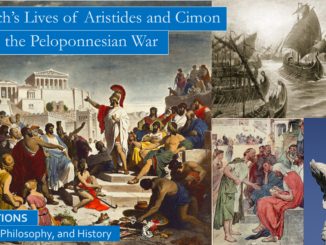

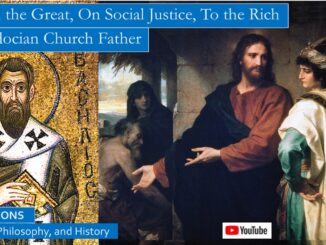
3 Trackbacks / Pingbacks